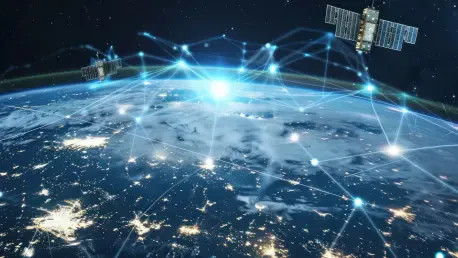Could the same vulnerabilities that plague our everyday devices extend all the way to space? As reliant as society has become on satellites for their indispensable roles in defense, navigation, energy, and communication, the perception persists that satellites remain immune to digital threats due to their seemingly distant position in orbit. Yet, this belief is increasingly being challenged as cybersecurity experts warn that the air gap once seen as foolproof is becoming alarmingly penetrable.
Holding Our World In Orbit
Satellites are a critical backbone for countless sectors, providing essential services from global positioning system (GPS) navigation to communications vital for modern infrastructure. Their importance stretches into areas such as military strategy and environmental monitoring, positioning them at the heart of technological advancement. However, a widespread misconception lingers that satellites are beyond the reach of cyberattacks, insulated from terrestrial systems. This assumption neglects the reality of satellites’ integration with ground-based networks for command and data processing, making them susceptible to exploits similar to those targeting Earth-bound technology.
Uncovering the Layers of Satellite Vulnerabilities
An often thought-of perception holds space as an impenetrable fortress, yet history has told a different story. As Barbara Grofe from Spartan Corp. attests, incidents have shown that satellites are indeed vulnerable. Notably, Thales Alenia Space has demonstrated satellite manipulation, and Russia’s cyberattack on Viasat during the Ukraine conflict provided a stern reminder of just how contested the domain of space has become. An asymmetry in attack capabilities allows for small-scale efforts to result in disproportionate impacts, altering space’s status from untouchable to a sphere of geopolitical contest and cyber warfare.
Insights From Industry Experts
Expert Barbara Grofe sheds light on the potential for increased cybersecurity funding, underscoring the strategic significance satellites have assumed in conflict situations like Ukraine. Geopolitical dynamics create a web of governance challenges, complicating efforts to attribute and counter cyber threats effectively. Anecdotes reveal the real-world implications of cyber vulnerabilities, with experts emphasizing the need for robust international discourse and comprehensive strategies, now central as space assets face mounting security challenges.
Embarking on Secure Trajectories
Guarding satellites for future resilience requires strategic foresight and immediate action. Implementing diligent vulnerability assessments and expanding access to threat intelligence is paramount to enhancing security measures. Experts advocate for adopting machine learning technologies, providing a proactive defense against evolving threats to space infrastructure. Fostering broad awareness and proactive strategies is essential to dispel myths and ensure the security of vital space-based assets.
Conversations on satellite cybersecurity emphasize both the intricacies and urgencies that accompany the protection of these critical systems. As nations and companies converge on safeguarding space assets, the narrative pushes toward increased collaboration and innovation in crafting governance and defense mechanisms. Recognizing potential threats brings a necessary shift toward fortified security protocols, ensuring satellites remain safe anchors in a volatile cyber realm.









